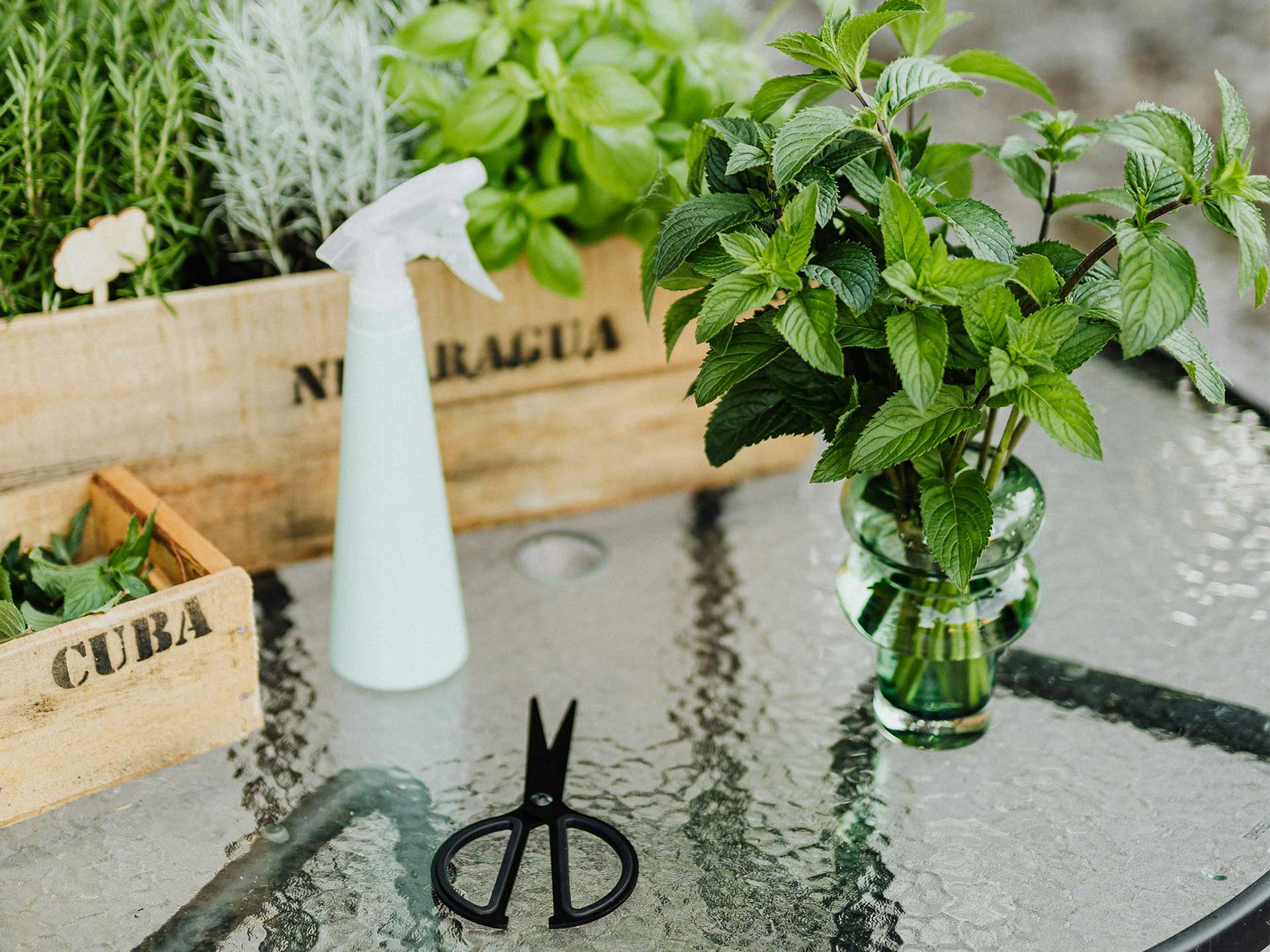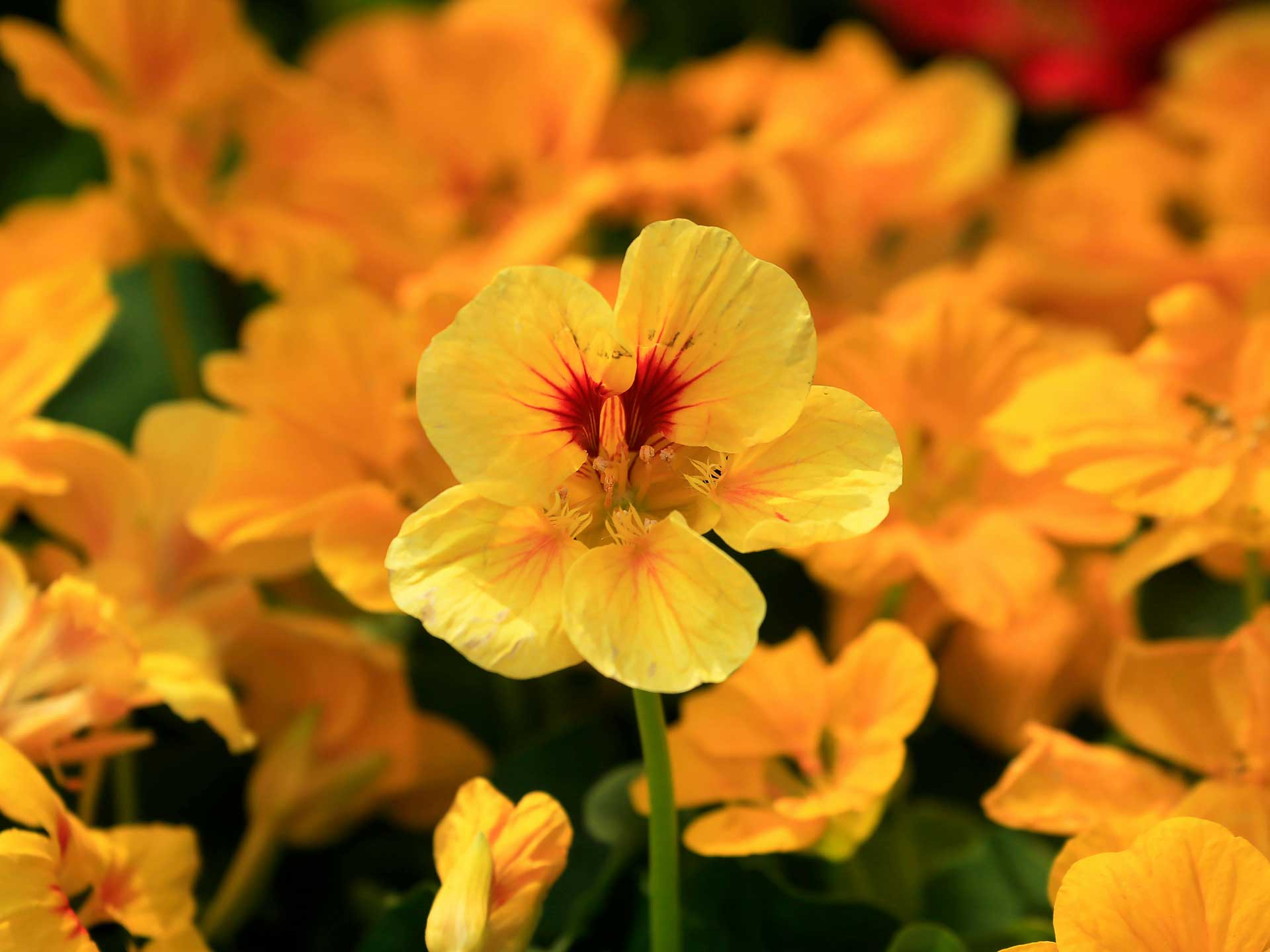
Image credit: Pexels/Jeffry Surianto
Effective, eco-friendly ways to deter garden pests
Many of us spend the year waiting for summer to come, only to remember its downside- summer pests – from fruit flies overtaking the kitchen to slugs chomping your prized plants. While in the past, we might have resorted to more drastic options, such as slug pellets and fly sprays, these are particularly harmful to the bee and butterfly population and are best avoided. There are plenty of natural methods to deter summer pests without using harmful chemicals, all far better for maintaining a healthy environment for yourself and your surrounding wildlife.
These effective, eco-friendly ways to dispose of summer pests are all relatively low-cost and will help your garden thrive. Interestingly, RHS no longer class slugs and snails as pests, as they increasingly recognise the good they can do for gardens and ecosystems. That said, you don’t want your freshly bloomed flora and fauna being shredded. These eco-friendly ways to deter summer pests, like slugs, snails, aphids, fruit flies, and mosquitos (without a grain of salt in view) should lead to a happier summer for all.
Fruit flies
August is slated to be the worst summer months for fruit flies. The warmer weather encourages more of the tiny, brown insects to descend on your garden and kitchen. Overripe fruit and rotten food, food scraps in the drain, and fruit scraps in the compost pile are all things that can attract fruit flies in their numbers. So, first of all, give your kitchen a deep clean, including your drains. Wash any fruit and vegetables you bring into the house, as they could have sticky produce left on them that will attract fruit flies.
Don’t leave out old cups of tea or coffee as fruit flies love anything fermented, like beer or wine, so thoroughly wash any alcohol bottles before they go into the recycling. Make sure any kitchen compost bins you have are completely sealed, or if they’re still a problem, you can freeze your compost scraps before you put them out. Fruit flies are drawn to anything moist, so consider not leaving out cleaning cloths or making sure they’re spotless and dry. If you do have food out, keep it covered. Gisela Graham (pictured) has a great range of food covers made from iron mesh and raffia.

Once you’ve taken preventative measures and got cleanliness covered, you can deter fruit flies with strong smells, namely basil plants, which have an intense aroma that flies don’t like. Either place a large basil plant next to your fruit bowl or scatter basil leaves on your fruit. Fruit flies also dislike the smell of lemon, so cut a lemon in half, stud it with cloves, take a bowl, squeeze some of the juice into the bowl, and leave it on your countertop.
When it comes to your garden, fruit flies love all kinds of berries, apples, pears, and tomatoes. You can get a plastic bottle, fill it a couple of inches full with apple cider vinegar, and drill small holes higher up the bottle to attract the flies. Then, hang it in your trees near the fruit.
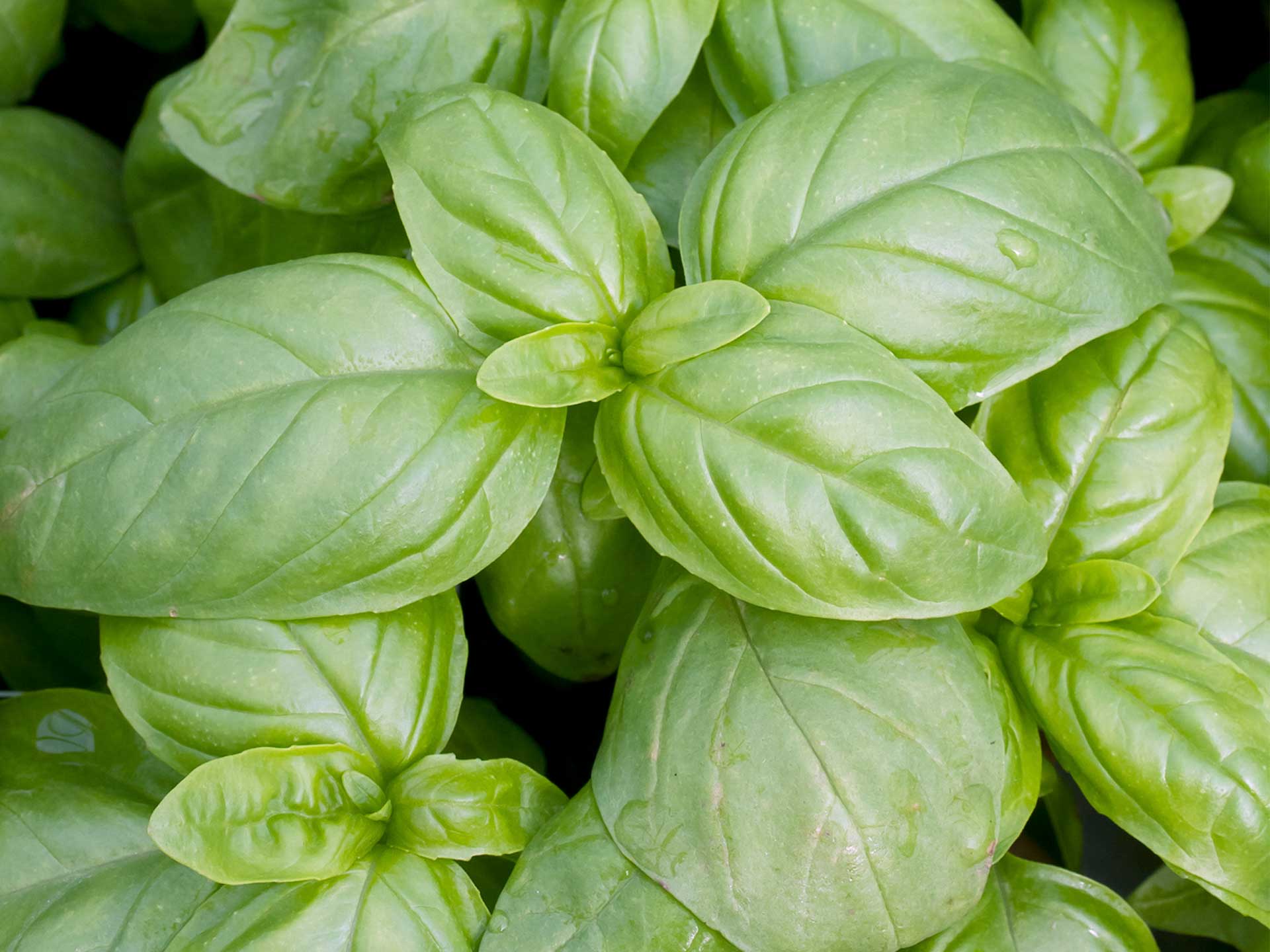
Mosquitos
Mosquitos are the bane of summer, but there are preventative measures you can take to keep them at bay. Mosquitos predominantly lay their eggs in stagnant water, so dry out washing-up bowls and turn them upside down, don’t leave water in watering cans, and regularly clean out bird baths.
It’s well-known that citronella is a natural mosquito deterrent, thankfully, things have improved from the overpowering, chemical scents of the past with the gorgeous Cornish candle brand St. Eval. Their hand-poured citronella candle (pictured) has a zesty citrus scent with notes of apple and musk and a burn time of 45 hours. To deter mosquitos, you could grow citronella grass, lemongrass, or scented geraniums in the garden.
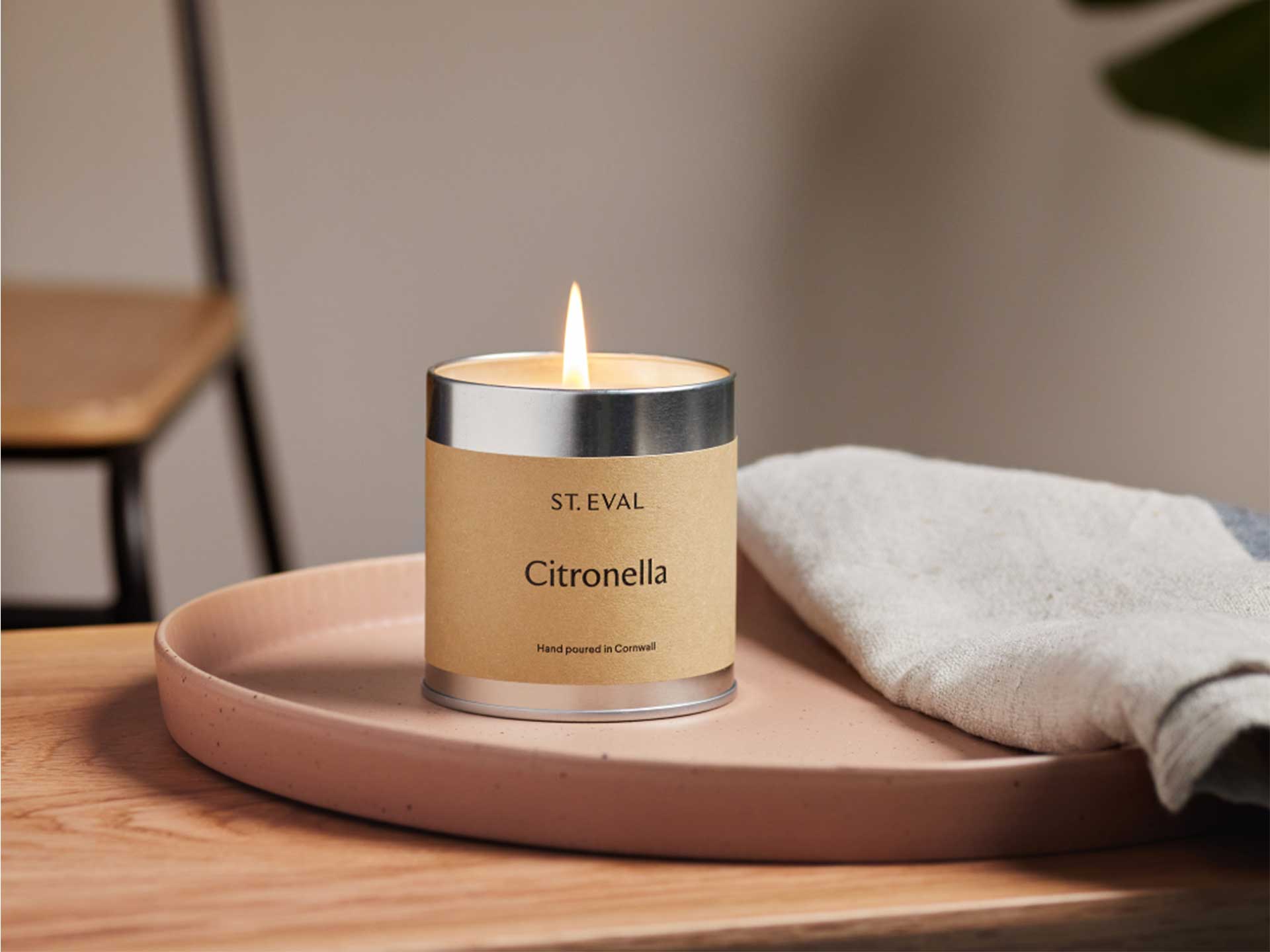
Mosquitos are most active at dawn and dusk, and The Positive Company has come up with a great eco-friendly range of anti-insect sleepwear, which bills itself as keeping 90% of bugs at bay, including mosquitos, midges, and ticks. Made from a lightweight bamboo fabric infused with insect repellent, the sleepwear is also breathable, odour-resistant, and sweat-wicking, so it regulates your body temperature. Mosquitos are not strong fliers, so it can help to have fans positioned in your rooms. You could even use outdoor fans if you have al fresco seating areas to deter them.

Slugs
When slugs are munching through your prized flowers, it’s easy to see them as a nemesis, especially as there are billed to be, on average, 200 slugs per square meter in the average British garden (it’s somewhat reassuring that 95% of them live underground). However, RHS is no longer classing slugs and snails as pests; as annoying as they can be, they benefit your garden. Instead, try creating a biodiverse ecosystem in your garden to balance the impact of slugs. Firstly, the healthier your soil is, the stronger your plants will be, giving greater resistance against slugs. Bring in bird baths, feeders, birdhouses, and ponds for frogs; these are natural predators of slugs and will naturally keep your garden’s slug population down.
A diverse range of plants can make it harder for slugs to find their favourites, particularly if you opt for companion planting, which is where you grow certain plants that repel slugs like garlic, rosemary, sage, chives, white fennel and nasturtiums amongst plants they might favour. For more slug-repellent planting options and colour in your borders, cranesbill geraniums, foxgloves, astilbe, hellebores, lavender, ferns, and Japanese anemones are all slug-resistant plants. Consider also potting some sacrificial plants that can be easily replaced, like marigolds and petunias, which slugs love.
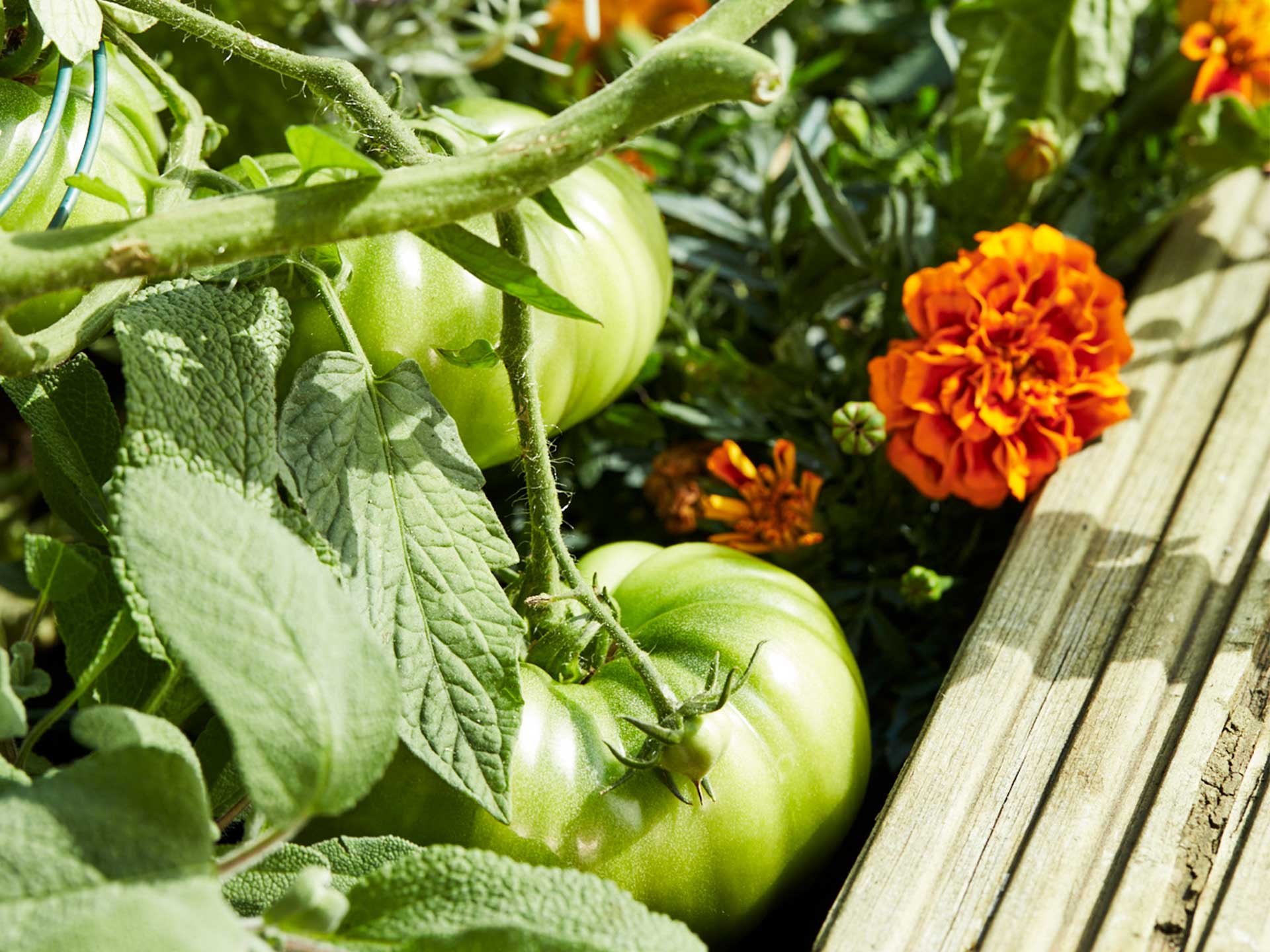
Rainbow Rubbish Removals says, “Coffee grounds are a cost-effective and eco-friendly alternative to commercial pest control products” and that you can “spread the used coffee grounds around the base of your plant to create a barrier that pests are less likely to cross. You can also use them to deter bugs from coming into your house by placing small bowls of grounds in key areas – just make sure to dry them out first so they don’t go mouldy.”
Another option, providing you’re not squeamish, is to carefully and physically remove the slugs from your plants and relocate them. If you don’t fancy that, you could cut a grapefruit in half, hollow it out, and leave it near your plants; the slugs will crawl into these and be easier to move.
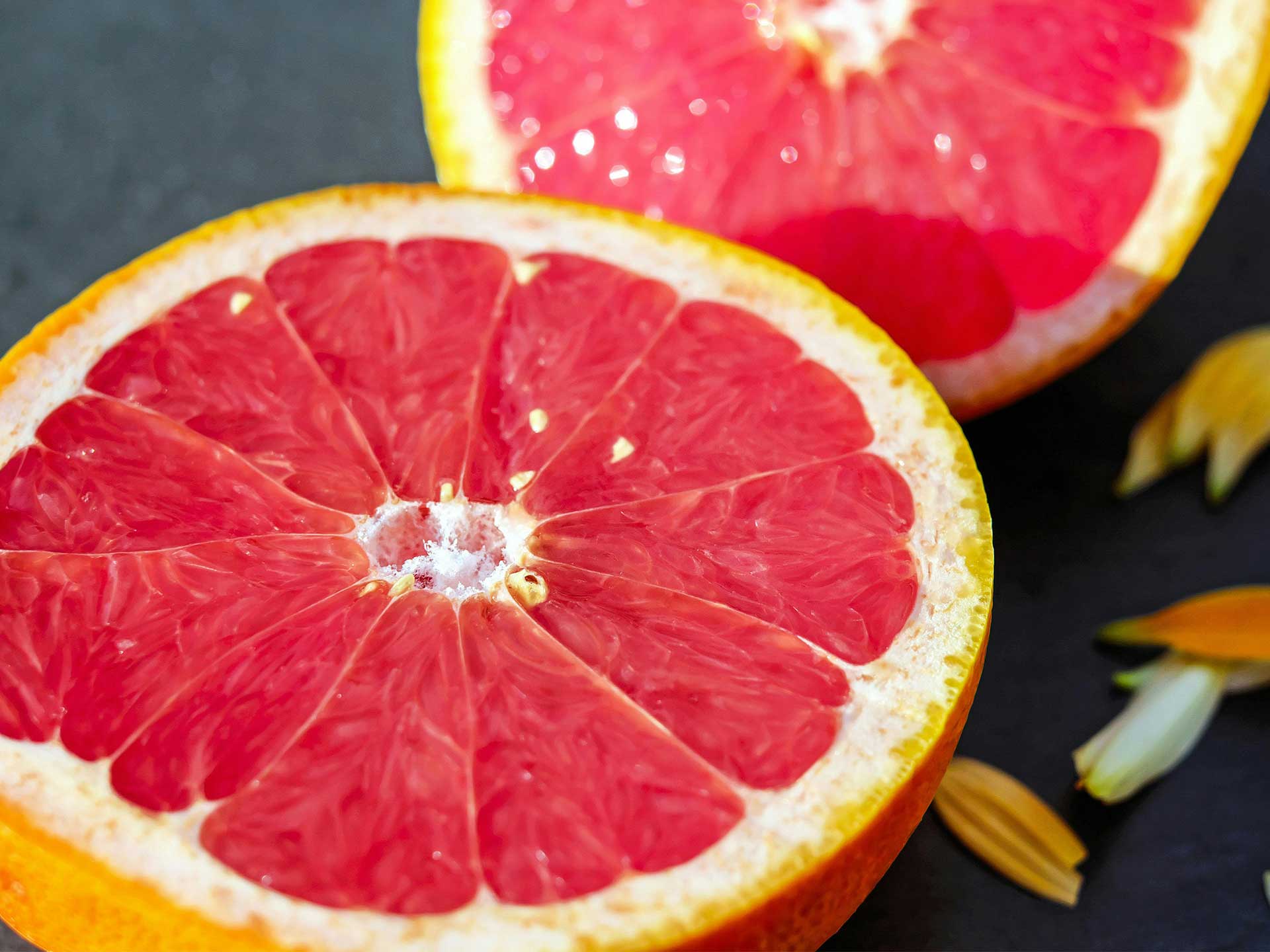
Snails
In a similar vein to slugs, also in the mollusc family and both classified as gastropods, snails will happily shred your garden. To deter the summer pests, protecting young sprouts and seedlings is especially important, so nurture them in a greenhouse and cover them with cloches once they’re in the ground. Claverton Cloches (pictured) make beautiful Victorian-inspired cast-iron cloches to protect your crops.
Snails love dark, damp places, so consider thinning out and moving thick bushes if they’re very close to your edibles. In general, keep the area near your growing patches as tidy as possible, with very short grass. Putting your flower pots high up to deter snails and slugs or even using plant pot feet can help. A barrier like Vaseline can also be smeared on the bottom of your plant pots so slugs and snails find it too slippery to slither upwards.
Like slugs, snails don’t love anything highly scented, so consider introducing snail-resistant plants like rosemary, lavender, and sage to your garden.

Aphids
Aphids are small-bodied insects that feed on sap, also known as greenflies, blackflies, or plant lice. They’re most active in the garden in spring and summer, although indoor plants can be susceptible to them year-round. Aphids excrete a sticky substance on your plants, which can cause mould. Aphids are, however, a food source for plenty of wildlife in the garden, including ants. So, instead of thinking about how to remove them, try creating an environment that will bring more well-known aphid predators, like ladybirds, hoverflies, and lacewings. In case of a substantial aphid population, try growing and planting garlic near heavily affected plants, as it’s pungent enough to deter the summer pests.
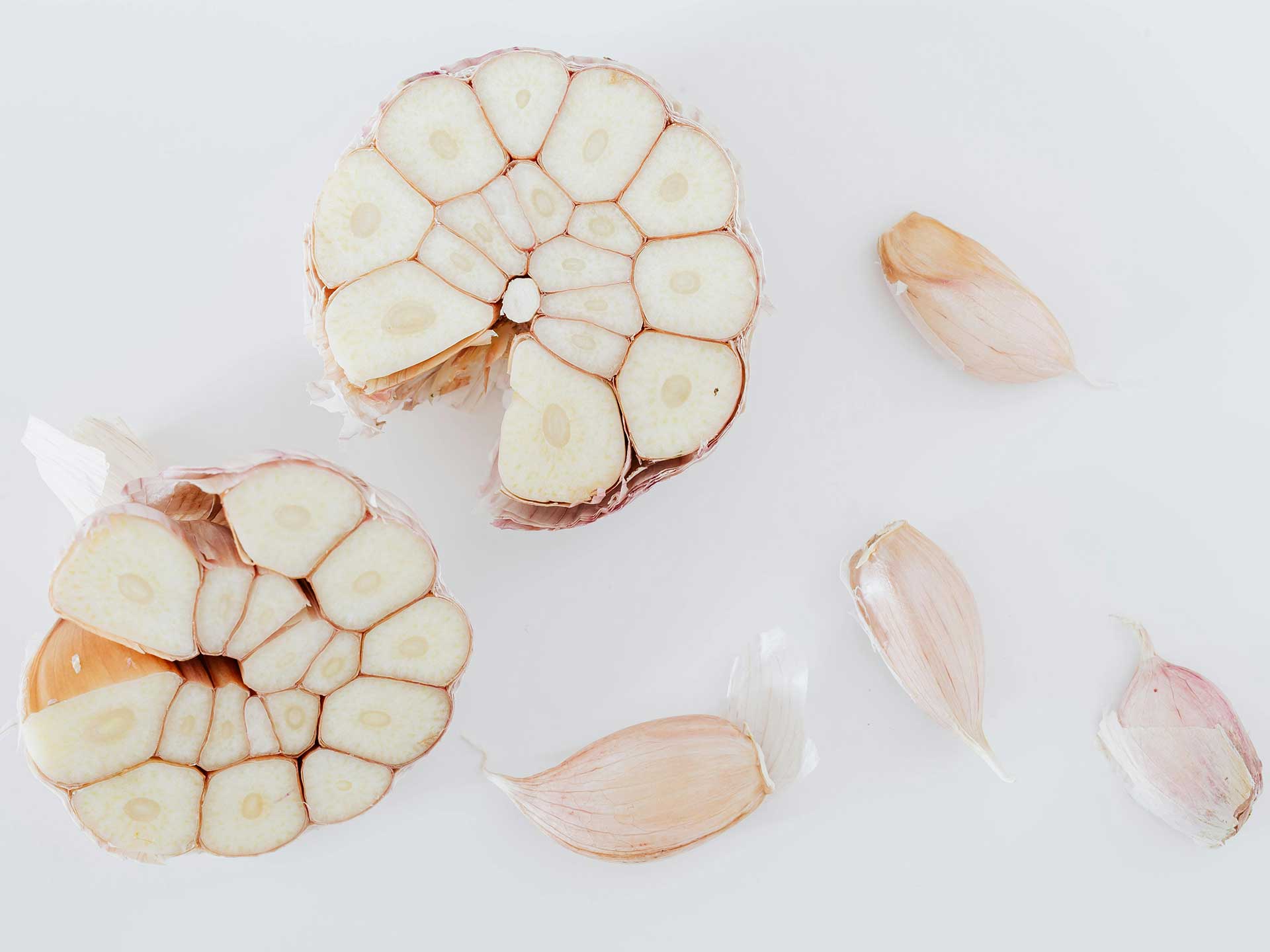
Ants
While ants seem annoying, they do very little direct damage to plants. RHS explains that “unless nests are particularly troublesome, ants are best left alone. If a colony is destroyed, its place will likely be taken over by in-coming queen ants, who will take over the territory and may establish even more new nests.”
While ants are best left alone in the garden, you might want to deter the summer pests indoors. You can sweep up ant trails and use a few sprays of white vinegar solution (three parts water to one part vinegar), wiping with a damp cloth. This will remove the pheromone scent to deter further ants. Ants also dislike the strong smell of peppermint, so you can use peppermint oil or spray indoors.
